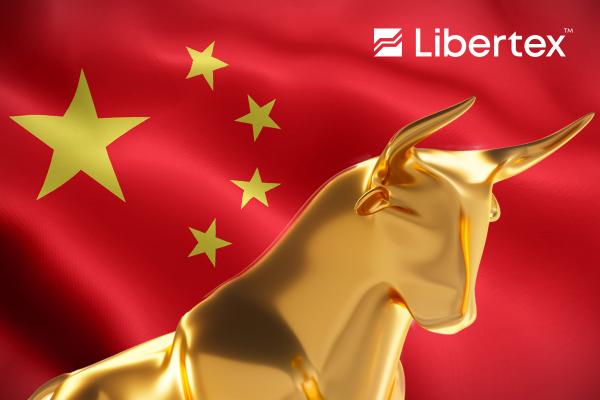We all remember just how devastating the pandemic was for the entire world's economy. However, as much pain as some countries experienced, no nation was hit worse than China. This was due to a combination of factors, but chief among them are the heavy reliance of Chinese industry on Western custom and, of course, the CCP's ultra-draconian and now infamous "Zero COVID" policy.
But now, after a more than underwhelming three years that has seen the bulk of China's biggest companies on a seemingly unstoppable downward trajectory, there finally appears to be light at the end of the tunnel this week following a much-anticipated meeting of the Chinese Politburo on Monday (31 August 2023). As we head into Q3 of this highly uncertain year for the world, investors and traders everywhere are looking for bargain markets with strong independence and low correlation with US and European markets, and China certainly fits that bill.
What's the news?
The July Politburo meeting is known to set the tone for China's economic policies in the second half of the year. This is why market participants and pundits watched it closely in eager anticipation of firmer policy guidance for faltering growth in the world's second-biggest economy. And the elite of the communist government certainly didn't disappoint this time around. Following significant GDP underperformance in Q2, with figures putting growth at 6.3% instead of the 7.3% forecast, China's top leaders pledged to increase policy support for domestic consumption amid a much slower-than-expected post-pandemic rebound. In the meeting minutes, Xinhua News Agency reported the Politburo as stating that a full post-COVID recovery will take a "wave-like" shape and the process will be "torturous".
Stocks on the up
Despite the long road ahead, the clear sign that the government recognises the scale of the problem and is willing to offer policy support helped to buoy stocks across Asia. The biggest initial gains came on Hong Kong's Hang Seng, where some of China's biggest tech stocks are registered. Alibaba, for instance, shot up 5% the day after the Politburo meeting this week and, as of 3 August, is sitting at HKD 93.15, a monthly gain of 10%. Baidu, on the other hand, made its gains in the days leading up to the meeting and then dipped slightly in the days that followed. BIDU is still up almost 8% to HKD 144.85 since 25 July, so things are still definitely looking positive for the tech giant. Tencent's trajectory was very similar, rising slightly ahead of the meeting before correcting downward again after the meeting itself. It currently stands at 342.80, which marks a 7.5% gain from its 25 July local low.
A look to the future
Traders and investors would be forgiven for thinking that this is the end of the Chinese stock market's stagnation, but we shouldn't forget November of last year. Just like now, we saw a strong uptick across Chinese equities once the CCP announced the end of its harsh anti-COVID restrictions, but the market soon moved back into a sideways channel. We would be wise to heed the Politburo's message that this recovery is likely to be "wave-like".
As we mentioned earlier, China's industry is largely dependent on a healthy economic situation in the US and Europe. With the ongoing geopolitical uncertainty and energy crisis, we can't be too optimistic about a rapid rebound for China's manufacturing-heavy economy. That said, domestic consumption and sentiment are definitely trending up, and the multi-year lows of many of the biggest Chinese companies certainly make them attractive buys for long-term investors. There's still a long way to go, and we have to be cautious in our optimism, but the medium-term picture for Chinese stocks will become much clearer by the end of this year.
Trade China-related underlying assets with Libertex
Libertex offers CFDs in a wide variety of asset classes, from stocks, commodities and indices all the way through to forex, options and even crypto. There's something for everyone. And since we offer both long and short positions, you can throw your hat in the ring in whatever direction you think the market is headed. From China, Libertex offers CFDs in all the major tech stocks, including Alibaba, Baidu and Tencent, as well as the China A50 index and iShares China Large-Cap ETF for more diversified traders For more information or to create an account of your own, visit www.libertex.org today!






